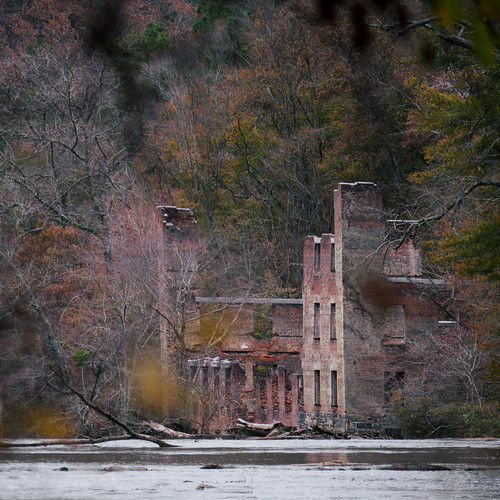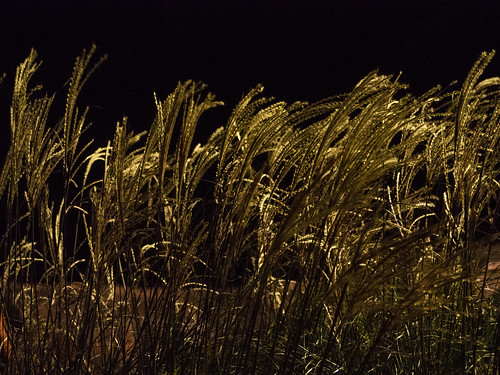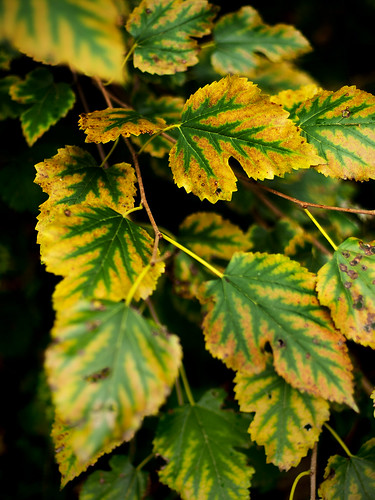Saturday, November 30, 2019
Pic(k) of the Week: Remains of New Manchester Manufacturing Co.
Remains of the New Manchester Manufacturing Company, an 18th-century water-powered mill in Georgia, USA, once a large manufacturer of cotton textiles, yarn, and fabric, 'humbly' named for the city of Manchester, England, then the world-renowned center of textile manufacturing.
The Union Army effectively destroyed the mill in 1864, during a campaign preceding the Battle of Atlanta of the American Civil War.
As seen looking east to west, across the Sweetwater Creek, in an eponymous State Park, about 20 miles west of Atlanta, near the town of Lithia Springs, in Douglas County, Georgia, on 17 November 2019.
-----more-----
Labels: American history, Civil War, Georgia, history, park, Pic(k) of the Week, river, ruins, southeastern US
Saturday, November 23, 2019
Pic(k) of the Week: PBR at Northside Tavern
A mural depicting a bald eagle and the logo for Pabst Blue Ribbon beer is painted on the outside wall of Northside Tavern blues club —and 'dive' bar— in Atlanta, Georgia, USA.
Despite its name, Northside sits in Atlanta's Westside, an area that has experienced rampant redevelopment since February 2016, when I took this photo. One hopes for the club's continued long life.
And for that of the blues.
-----more-----
Labels: beer, black and white, blues, breweriana, mural, music, Pic(k) of the Week, pub
Tuesday, November 19, 2019
Inked and Real
Ah, the beauty of cask-conditioned 'real ale.'
Real ale is a natural product brewed using traditional ingredients and left to mature in the cask (container) from which it is served [without extraneous gas pressure] through a process called secondary fermentation [and served at what is called 'cellar' temperature —in the low to mid 50 degrees Fahrenheit.] It is this process which makes real ale unique amongst beers, and develops the wonderful tastes and aromas which processed beers can never provide.— CAMRA [with edits].
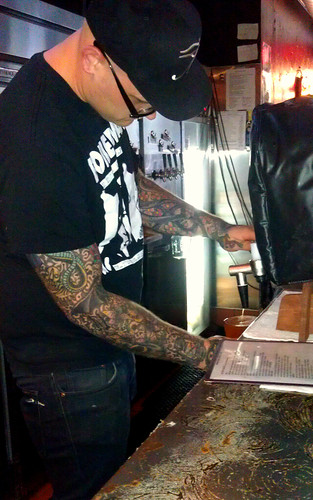
A bartender pours real ale directly from a firkin (10.8-US gallon cask). At Spacebar in Falls Church, Virginia, USA, on 8 September 2012.
Think of real ale as uber-fresh, as if it were being poured directly from a brewery fermenter. It is a deliberate process, involving both a brewery and pub.
What cask-conditioning is NOT is tossing beer into a cask; that's just tossing a beer into a cask. In fact, cask-conditioning does not imply or require the infusion of artificial or extraneous ingredients. That's just —as a friend describes it— tossing in "cocoa-puffs and dingleberries."
What real ale IS —as Jeff Alworth described it on p.84 of The Beer Bible— is "living beer."
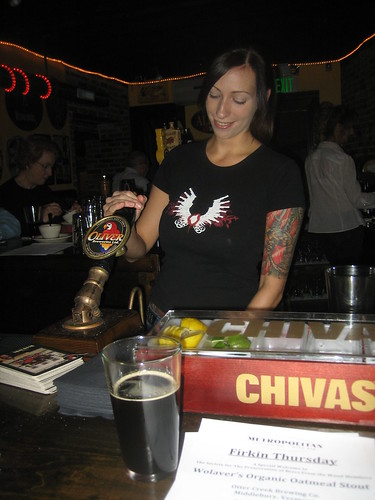
A bartender pulls real ale from a firkin via a beer engine (hand-pump). At Metropolitan, in Baltimore, Maryland, USA, on 13 November 2008.
***************
Cask Marque USA
If your U.S. pub, brewpub, or brewery taproom serves cask ale on a regular basis, you can receive accreditation from Cask Marque, now also available in the United States. Consultation is also offered. Information: here.Cask Marque, begun in the U.K. in 1997, is a voluntary accreditation scheme that allows publicans to display a special symbol indicating that their cask ale is of good quality, as judged by a series of surprise inspections.
-----more-----
Saturday, November 16, 2019
Pic(k) of the Week: Reeds at night
Reeds in empty lot
Streetlamp's metallic sheen
Whipped by frosted wind.
At night, in a parking lot, in Decatur, Georgia, USA, 12 November 2019. You can't tell: it was bitterly cold.
-----more-----
Friday, November 15, 2019
A Hefe day: Widmer Brewing, for all intents and purposes, is no more.
In the late 1990s, I attended a Craft Brewers Conference (then, a much, much smaller affair than now) in Seattle, Washington.
Paul Shipman, CEO of Redhook, gave the keynote address. Gloating in smug self-appreciation, he told us that his minority sale to Anheuser-Busch (itself not yet devoured by InBev), was the best business decision he had never made. Get big or die he seemed to tell us. A friend whispered to me: he's telling us to bend over and take it from A-B.
Where is Shipman now? “He calls the decision to partner with Anheuser-Busch 'the defining error of my career.'” In creating the brewery Craft Brew Alliance, Redhook would be, for all intents and purposes, subsumed by its bigger partner, Widmer Brothers Brewing. The Craft Brew Alliance itself sold a minority stake to A-B. And the [U.S.] Brewers Association punished it by rewriting Rob and Kurt Widmer out of the community of 'craft.'
**************
The 'end' of Widmer
Two and a half decades later, the chickens have come to roost. In case you missed it, with all the other news, Anheuser-Busch InBev has purchased the whole thing.
This past September, the international behemoth refused to exercise its option to purchase Widmer/Craft Brew Alliance by a deadline set years earlier. That inaction simply drove the stock price down. A lot. A-B retendered its offer but at a significant discount. The board of the Craft Brew Alliance, in its fiduciary responsibility to its shareholders, now had an offer it couldn't refuse.
And, now, there is no more independent Widmer.
**************
So what?
A collective yawn seems to be the response of many 'craft-ers.' Many new breweries think of themselves as the true torch-bearers and of all who came before --if years, or even months or weeks-- as irrelevant and unimportant.Few will admit to drinking a Widmer 'American Hefe.' But they do. Because it's a refreshing and tasty beverage.
Yes, all this is just business; but it's a loss of our collective legacy.
Widmer dates to 1984. The following year, Oregon granted brewers the right to sell their own beers on-site —in no small measure because of the new brewery's lobbying efforts. That was THIRTY-FOUR years ago. For brewers in other states, it has taken decades to get that same business 'privilege.'
You rest on others' Jenga blocks. When you knock those out, you teeter. A sad day. I think I'll drink a Hefe. Bittersweetly.
**************
Read more.
- The story of the sale: Oregon Live (11 November 2019).
- The always perspicacious Jeff Alworth puts it in perspective: Beervana (13 November 2019).
-----more-----
Saturday, November 09, 2019
Pic(k) of the Week: Fortitude in the marsh
In the morning light, it stands solitary in the marsh — its spine bent like an 's,' its spindly branches bare except at the crown— and yet it evinces fortitude.
I've attempted before to capture a worthwhile image of this pine tree on the bank of Postal Pond in Decatur, Georgia, USA.
On 3 November 2019, I think I got it.
-----more-----
Saturday, November 02, 2019
Pic(k) of the Week: Colors of autumn
Time was, preserving a leaf under a flyleaf was a life memento. Nowadays, there are e-variants thereof. Here: colors of autumn, from October 2019, seen in and around Atlanta, Georgia, USA.
And another: when spring's joy-green, its purchase failing, could yet be seen.
***************
Pam Bricker & Autumn Leaves
The song Les Feuilles mortes was composed for the 1946 French movie, Les Portes de la Nuit (Gates of the Night) by Hungarian émigré Joseph Kosma with lyrics by French poet Jacques Prevert. The song soon became a popular music standard (Edith Piaf's version, well-known) and a jazz standard. The American lyricist Johnny Mercer penned the English translation, Autumn Leaves.Autumn Leaves, below, is from Washington, D.C.-vocalist Pam Bricker's 2001 album, U-Topia, named after a D.C. club in which she held a regular gig. Performing with her are her longtime accompanist, Wayne Wilentz, on keyboards, and Jim West on drums. It's a crystalline performance.
Ms. Bricker began her career singing folk music but, after moving to Washington, D.C., transitioned to jazz (and cabaret). In the 1980s, she performed with the vocalese group Mad Romance, then going solo in the 1990s. In the early aughts, she recorded with the acid-jazz Thievery Corporation.
I was fortunate enough to hear Ms. Bricker perform in person, on several occasions, in the early 1990s, at hotel lounges in Washington, D.C. Like any bar and lounge, there was a lot of inattentive audience chatter, an experience she compared to performing like "a living jukebox." Me, I paid rapt attention.
Bricker is blessed with perfect pitch, clear diction, more than average range, and a knowledgeable sense of the lyrics and feel for the beat, all packaged in a clear, cool set of vocal pipes.— All About Jazz
A life's memento of the remarkable Pam Bricker (1955-2005).
The falling leaves drift by the window
The autumn leaves of red and gold.
I see your lips, the summer kisses,
The sun-burned hands I used to hold.
Since you went away the days grow long,
And soon I'll hear old winter's song.
But I miss you most of all my darling
When autumn leaves start to fall.
-----more-----


